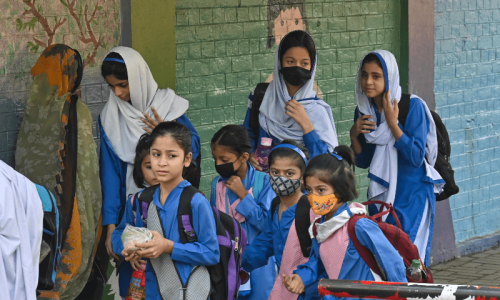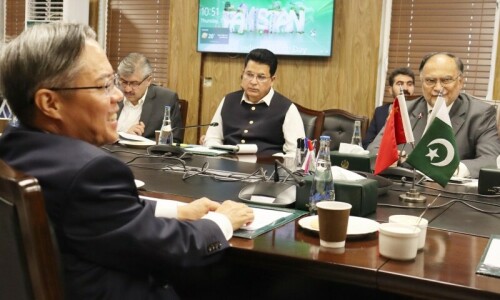BUDAPEST: Hungarians flocked to polling places on Sunday as voters in the Central European country faced a choice: take a chance on a diverse, Western-looking coalition of opposition parties, or grant nationalist Prime Minister Viktor Orban a fourth consecutive term in office.
The contest is expected to be the closest since Orban took power in 2010, thanks to Hungary’s six main opposition parties putting aside their ideological differences to form a united front against his right-wing Fidesz party.
Recent polls suggest a tight race but give Fidesz a slight lead. Analysts have predicted high turnout, and around 40pc of Hungary’s nearly 7.7 million eligible voters had cast a ballot by 1pm, according to the National Election Office.
Opposition parties and international observers have pointed out structural impediments to defeating Orban, highlighting pervasive pro-government bias in the public media, the domination of commercial news outlets by Orban allies and a heavily gerrymandered electoral map.
The Organisation For Security and Cooperation in Europe sent a full observation mission to Hungary to monitor Sunday’s election, only the second time it has done so in a European Union country.
Speaking at a polling place in a wealthy Budapest neighbourhood, the head of the OSCE mission, Ambassador Jillian Stirk, said the group’s assessments would be based “on the facts that we observe, from what we see and what we hear. So we don’t come with any kind of preconceived ideas.
Gabor Somogyi, a 58-year-old marketing professional, said after voting that he believes that Hungary’s media environment favors Orban and Fidesz, and has made the election unfair.
I really count on the monitoring. Its fine, I’m happy with that. But I don’t really believe (the election) will be clean enough. Even the campaign was not clean enough, Somogyi said.
Published in Dawn, April 4th, 2022














































